Abraham Accords Foreign Ministers in Israel
March 27, 2022
Current Discourse
On the one hand, there are those today that put great
importance on the Abraham Accords signed with the Gulf states and Morocco, arguing
that they, de facto, broke the paradigm that assumed that peace with the Arab
world would always go through an agreement with the Palestinians. For them, the
Abraham Accords illustrate that the agreement with the Palestinians can be
circumvented and still have good and beneficial regional neighborly relations.
Not only that, but they may promote a proper agreement with the
Palestinians, as it will make it clear to their leaders that Arab states can no
longer be held hostage to their issue, and they will be persuaded to move to a
final solution before losing the support of other Arab and Islamic states.
On the other hand, there are those who almost completely
dismiss the importance of these accords, sometimes even with arrogant contempt
on the grounds that it is not a big deal to sign agreements with
"countries that have never fought against Israel."
In fact, these two approaches cast the spotlight on
the problems of the region - especially on the resolution of the geographical
conflict between the Jewish state and the surrounding Arab states. True, there
are also those who say that.the two approaches focus on an important historical
event that promotes an agreement between Judaism and Islam
Future Discourse
If the current view of the accords is regional, then the view
from the future may be multilateral in which the current arguments may dwarf to
the point that they are insignificant anecdotes on the side of a broader and
more significant historical process. It is therefore important to try to
understand the agreement from a further perspective if only to give the
regional dimension a more modest weight and thus maximize its benefits, but
mainly to place it in a historical context of the significant processes the
human species is likely to experience during the 21st century. If we succeed in
elevating their broader historical context, we may be able to conduct ourselves
better in the present.
If so, in order to clarify the historical perspective of the
Abraham Accords we need to anticipate and take a quick look at human history
from the bird’s eye of 5000 years.
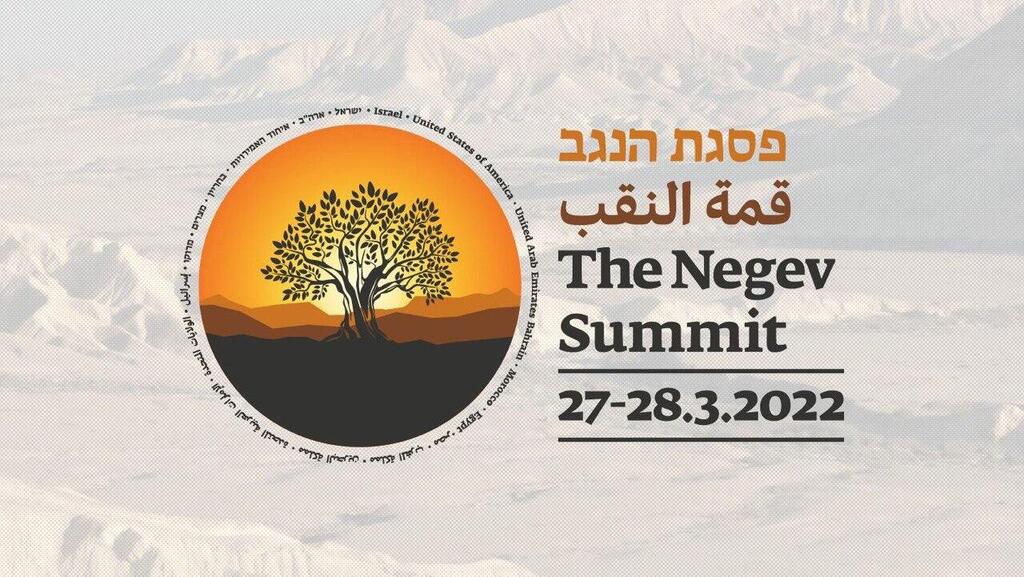
The Geographical Pivot
Much has been written about the geographical pivot of human civilization.[1]
If the theory can be summed up, it
can be said that this is the area around the geographical heart where most of
the resources of human civilization are to this day. The area around the heart
has been home for most of the people who have lived and still live on earth and
the geography on which they trade.
[1] Mackinder, H. J. (2020). The
Geographical Pivot of History. Cosimo Classics Press.
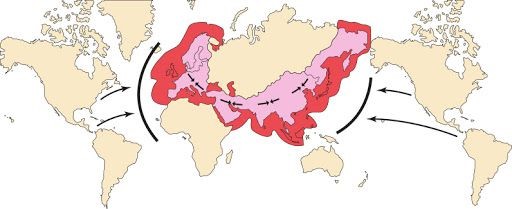
The two regions together
- the heart and the tiara-like area, are sometimes referred to as the
"world island". This island concentrates most of the main and
important resources for the existence of a developed civilization (about 60% of
world GDP), and energetic needs (about 60% of oil reserves and about 80% of
proven gas reserves) that can ensure continued prosperity.
The group of people who were able to understand and take
advantage of this geographical feature for many years was none other than
China, which, in the course of about 1600 years (between 120 BC and 1450 AD),
was able to develop the road network in the world island to connect its
inhabitants and provide them with a platform to share resources and move people.
This road network was called the Silk Road. For many years it was a factor that
promoted human civilization through the ongoing movement of resources and ideas
among the inhabitants of the "island”.
Islamic Caliphate
But since the death of Muhammad (632 AD) Islam, which was
founded on the basis of supremacy and religious exclusivity, has begun wars of
conquest to unite the Middle East along with North Africa and Europe into a
single Muslim unit.
In order to succeed in their brutal conquest campaigns, they
cut off the Silk Road that passed from the east towards Europe, thus blocking
the passage of goods, resources and technologies that could be of help to the
countries they sought to conquer and convert.
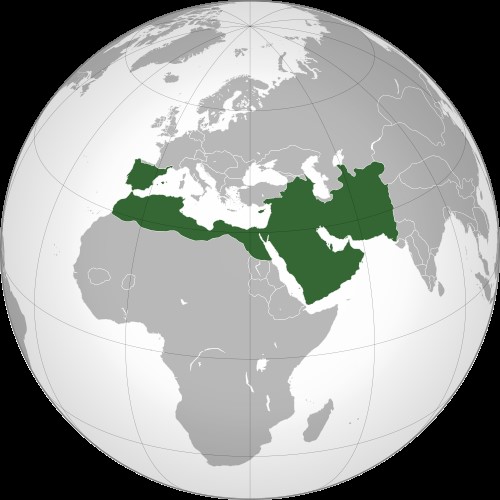
At the height of the unification
period, Islam actually ruled most of the territory of the geographical pivot,
embracing Europe all around and cutting it off from the Silk Road and thus
becoming a power that added to the darkness that characterized Europe in the
Middle Ages.
At the height of the Islamic Caliphate period, in the 15th
century, the Ottoman Empire numbered about 740 million inhabitants - the third
largest group of people in those days. It controlled an area of about 14
million square kilometers - the second largest geographical block in those
days. It had a GNP of $ 5.5 trillion (in modern terms) - the third-largest
block of countries in those days. And its decision-makers resided in Cairo (a
mega-city in terms of those days) numbering about 16 million men and women, which
was the 12th largest city in the Middle Ages.
Discovery of America
When Spain, representing European countries in their struggle
against the Islamic Caliphate, became impoverished from the conduct of
religious wars between Catholics and Protestants in Europe and was persuaded
after much effort by an adventurer and sailor named Columbus in 1492, that
there was a way to bypass the ME and reach India, the Caliphate began to lose
its geopolitical advantages.
The discovery of the American continent is known to
have brought new treasures and resources to Spain, which has become rich from
brutal conquests in South America. But the most important thing that has
happened in history, of course from a centuries-old perspective, is that slowly
the geographical advantage of the Islamic Caliphate has lost its value and, not
only that, but a blast in America has led to the discovery of a new source for
resources that did not rely on the "world island”.
European Colonialism
This historical process
reached its peak after about 500 years, at the beginning of the 21st century,
when, on the one hand, most of the countries that made up the Islamic suits,
did not understand the development vector in the history of civilizations, and
became failed nations that many sought to escape.
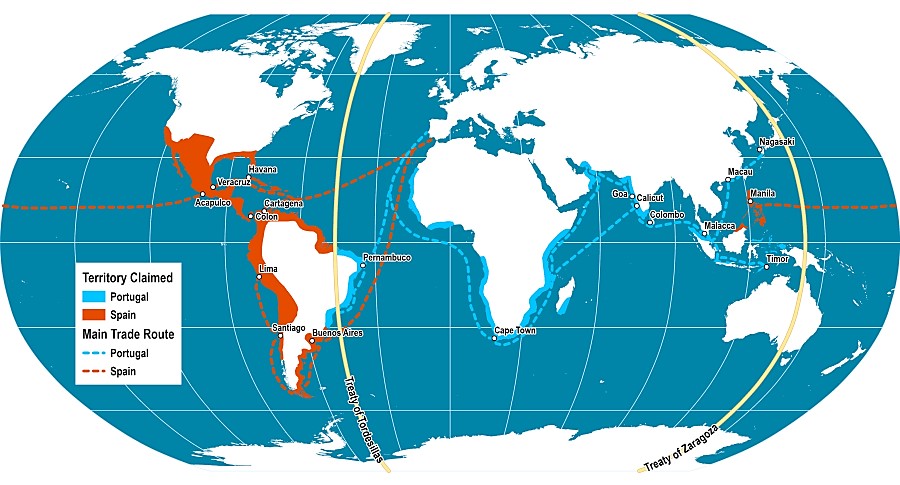
On the other hand, during the second half of the 20th
century, the European empires (including the USSR) also ended a period of glory
during two world wars, and the American power became the undisputed world
leader, mainly because of its ability to control the sea crossings of all continents.
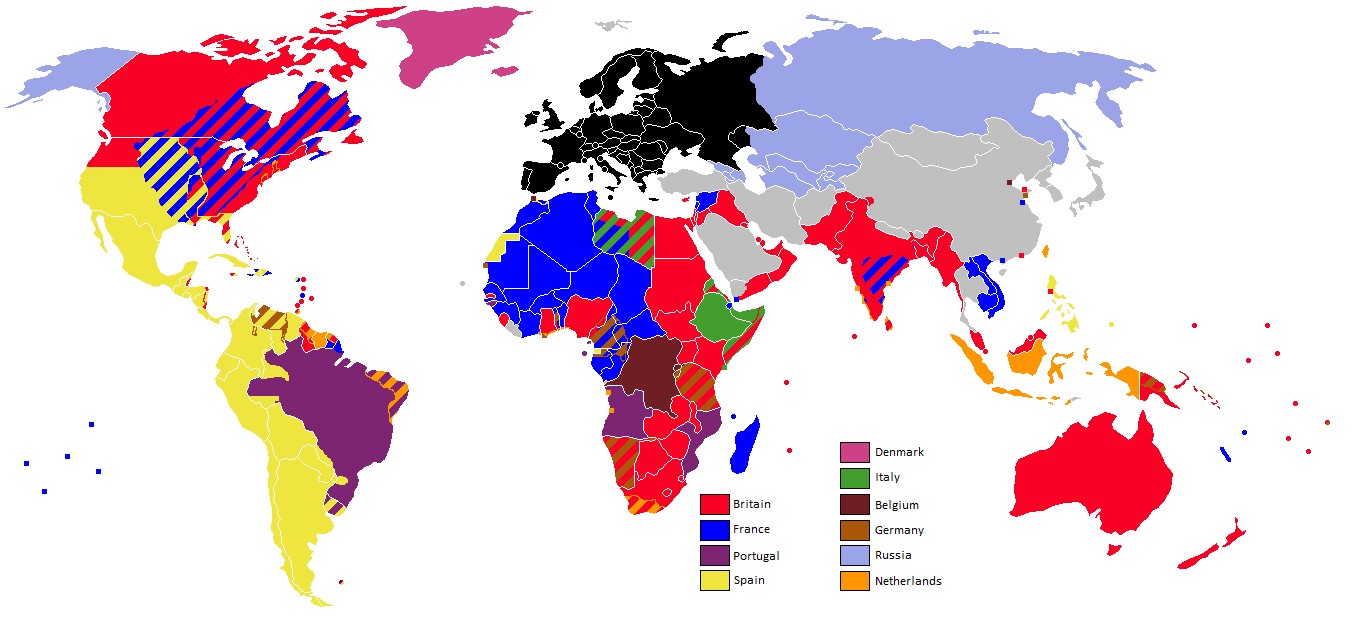
The Emerging Giant
But at the beginning of
the 21st century, or rather in 2013, a Chinese leader named Xi Jinping arose to
seek to turn the tide of the last 500 years in favor of China and lead the
world again by a new Silk Road that would inherit not only Asia, the Middle
East, and Europe but will also bypass Africa and the North Pole during the
summer. This worldwide venture is called the "Belt and Road
Initiative." It is estimated to cost $1 trillion in 2020 estimates. Its
goal is to place a network of ports, railways, oil and gas pipelines that will
cross Asia, Africa, Europe, and Latin America.
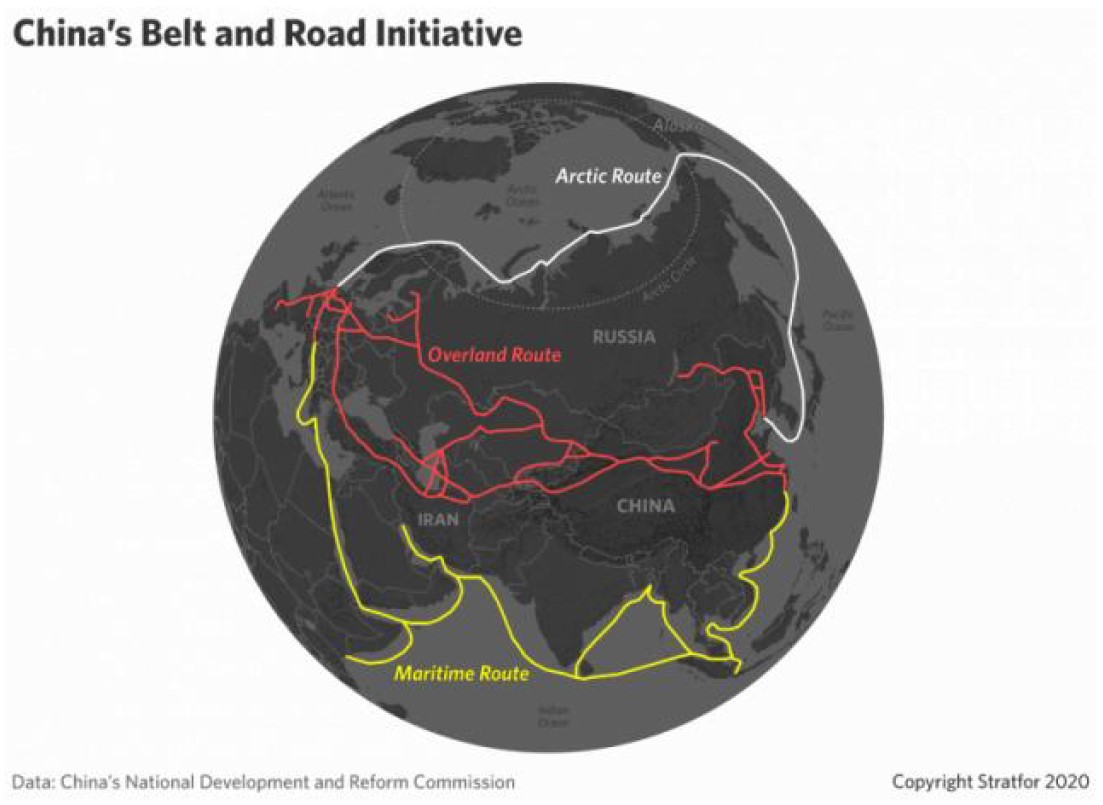
Another Giant Awakens
The U.S. which fell asleep on guard during the initial stages
of the project's implementation, during the second decade of the 21st century,
is waking up to fight back a geo-strategic war to halt the Chinese move.
I am not part of the closed circles of American
strategists to say that the following have been said somewhere. I rely solely
on reading between the lines of maps and parts of sayings that are occasionally
published by various senior government officials. In fact, from the point of
view of "future history,” it is very possible that this is how they will study
contemporary history and thus give a different meaning to the Abraham Accords.
Whether the following is true or not, this way of thinking can add an important
tier to understanding processes that may contribute to maximizing opportunities
or bypassing the bumps that agreements present in the present.
Braking Moves
In any confrontation, the first thing a good commander must
do is include in his strategy moves that will stop the enemy's movements. In the
escalating conflict between the United States (including many countries in the
West) and China (including many countries in Asia and Africa), the Americans
are arranging their cards and those of their friendly countries so that they
can be partners first and foremost against China's expansion vector and its containment
efforts. They will try to cut the new road they seek to establish.
This is not the place to list the many moves the
Americans are leading. It is enough if we look at the Abraham Accords and try
to understand them from the point of view of the American strategists as part
of their containment efforts. It can be said that Americans do not care if the
containment moves have religious or cultural significance. It is good that the
local interests are in sync with the interest and the broad course. It's good
that it's resolving a regional conflict in the process. But what really
matters, and for that they will be willing to invest a lot of effort and
money, is that the accords will fulfill the task whose purpose is to block the
new Silk Road.
Breaking in Southeast Asia
It is enough to look at
the maps to identify the containment moves that the Americans are establishing.
First and foremost, they are arranging the countries in Southeast Asia so that
they can choke, if need be, in the future, the new Silk Road at the important
transit point of goods passing through the main access roads in the heart of
the sea.
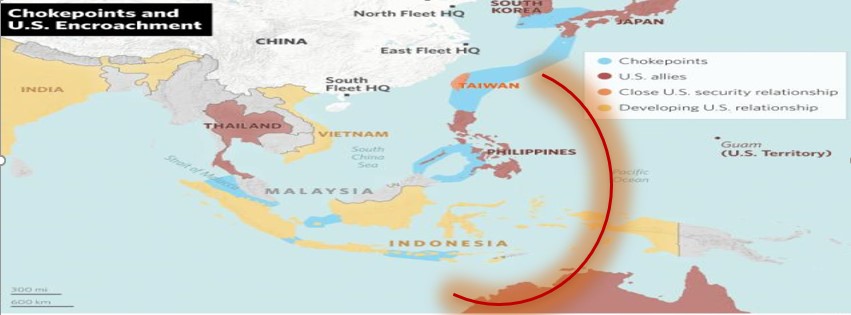
Braking force in the Middle East
The second containment move is to close the crossings that
the Chinese seek to build through the Middle East. Although they have already built
and driven a stake in many ports and infrastructure projects in Arab countries
and Israel, from the American point of view, most countries in the Middle East
need to be united in order to create another belt brake around the transport
lines coming from the Far East to the Middle East towards Europe.
To this end, they were willing to use a huge assistance
package in the form of beneficial trade agreements and very advanced weaponry
in order for them to get along with each other and join forces for strategic
purposes. These countries are the Gulf states, Israel, Jordan, and Egypt. Not
all moves have been completed and/or published. But many expect more moves that
are secretly brewing to be exposed as needed. In this respect, the first
published Abraham Accords are part of a more comprehensive strategy that is
well integrated with regional interests and along the way, they also resolve a
conflict that is time to go down in the history books because it only brings
more roomy damage to the great power of the period.
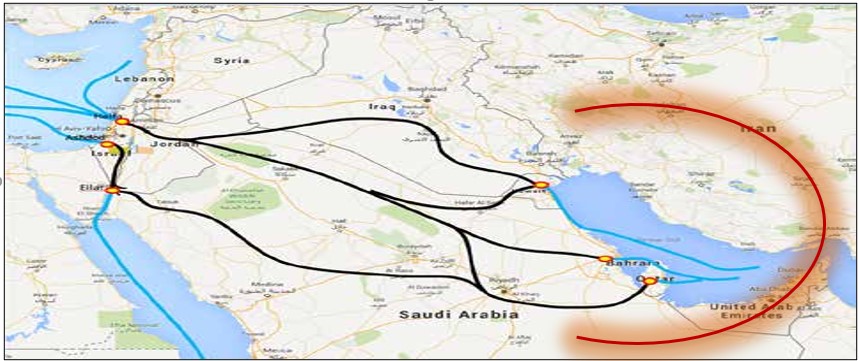
Braking force in West Africa
It now remains to understand the last slot in the American
containment moves derived from the Abraham Accords – the accord between Israel
and Morocco. Over the past decade, the Chinese have been able to advance
relatively quickly with their plan for a new Silk Road, especially around
African countries, with the intent of winging Europe through Africa and
establishing channels of trade and influence towards it.
If I were an American strategist, I would be looking for a
way to double the power by forming alliances between peoples that could create
another choke belt of the new road that would have a hard time stretching its
strings towards Europe from the South. In this respect, there is no better way than
Morocco to sit at the doorstep of Southwestern Europe. But Morocco alone will
not be able to meet the task and it needs a country with the technological
capabilities and human resources to produce a braking force worthy of the arms
of the new Silk Road that stretches around Africa coming to Europe. And there
is no better country for this task than Israel.
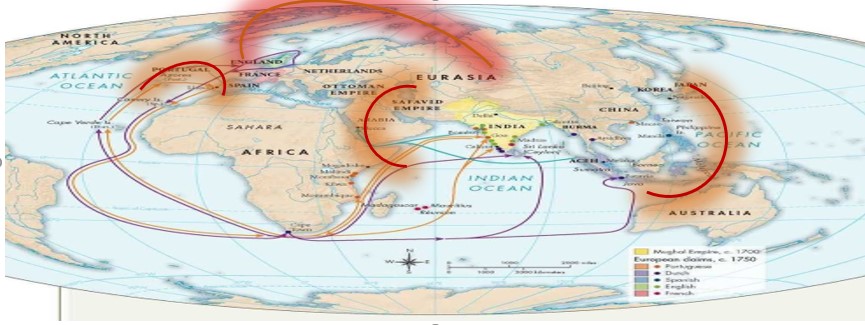
As mentioned, the Americans are making many, broader moves, but this is not the place to mention them. They include
not only containment moves but also attacks and undermining moves on which the
moves of China and its metastases are built. Among them is the establishment
of the axis of the four countries that embrace China - USA, Japan, India, and Australia
(Quad Nations - QN), the establishment of the cyber coalition whose members are
blocs of countries - USA, Britain, Australia, Canada, New Zealand and Europe
(Five Eyes Security Coalition), the Coalition of Technological Powers - which
includes blocs of leading countries (QN, G10, G7, SK, EU) and more.
And the struggle that will shape at least the first half of
the 21st century in the history of humanity has only begun to surface.
And this is another broad perspective to look at
and understand the Abraham Accords, its broad goals, and the long-term context
that drives it.























































































































































































































































































































































